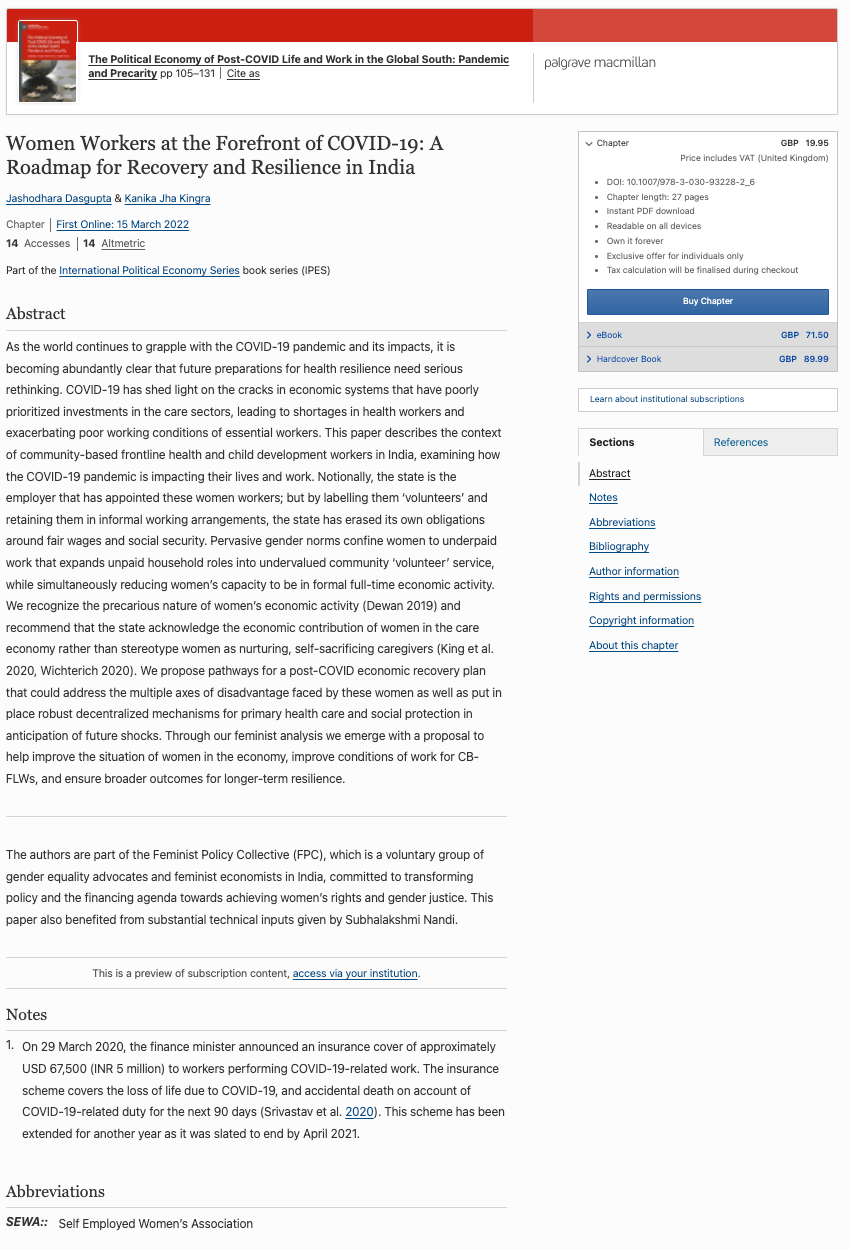Abstract
As the world continues to grapple with the COVID-19 pandemic and its impacts, it is becoming abundantly clear that future preparations for health resilience need serious rethinking. COVID-19 has shed light on the cracks in economic systems that have poorly prioritized investments in the care sectors, leading to shortages in health workers and exacerbating poor working conditions of essential workers. This paper describes the context of community-based frontline health and child development workers in India, examining how the COVID-19 pandemic is impacting their lives and work. Notionally, the state is the employer that has appointed these women workers; but by labelling them ‘volunteers’ and retaining them in informal working arrangements, the state has erased its own obligations around fair wages and social security. Pervasive gender norms confine women to underpaid work that expands unpaid household roles into undervalued community ‘volunteer’ service, while simultaneously reducing women’s capacity to be in formal full-time economic activity. We recognize the precarious nature of women’s economic activity (Dewan 2019) and recommend that the state acknowledge the economic contribution of women in the care economy rather than stereotype women as nurturing, self-sacrificing caregivers (King et al. 2020, Wichterich 2020). We propose pathways for a post-COVID economic recovery plan that could address the multiple axes of disadvantage faced by these women as well as put in place robust decentralized mechanisms for primary health care and social protection in anticipation of future shocks. Through our feminist analysis we emerge with a proposal to help improve the situation of women in the economy, improve conditions of work for CB-FLWs, and ensure broader outcomes for longer-term resilience.
Women Workers at the Forefront of COVID-19: A Roadmap for Recovery and Resilience in India






